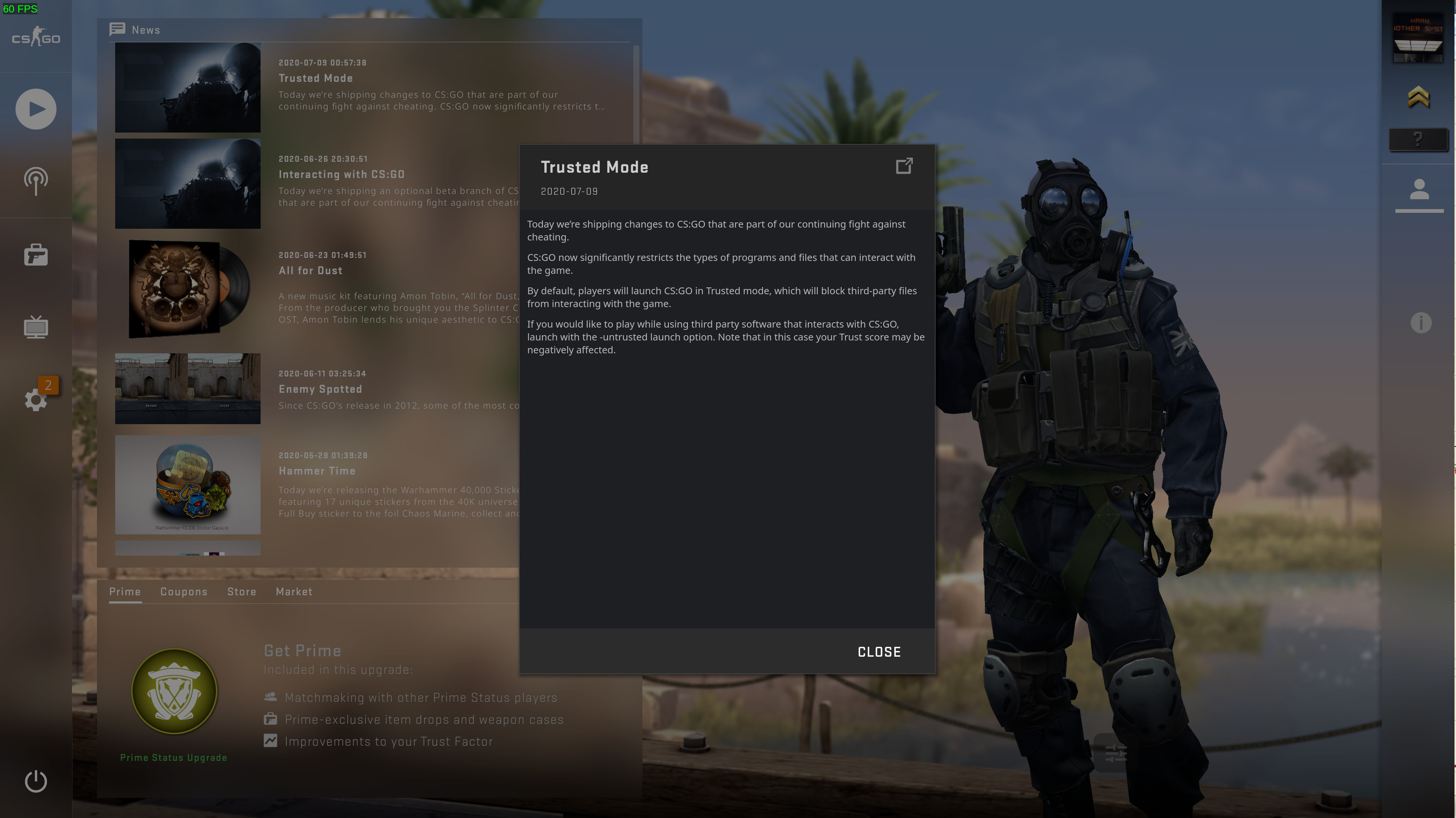Daily Wonders and Discoveries
Explore the latest news and intriguing insights from around the world.
Caught in the Act: Inside the CSGO Anti-Cheat Revolution
Uncover the secrets behind CSGO's anti-cheat evolution and see how it’s changing the game forever! Don't miss out on this gaming revolution!
1. Unmasking Cheaters: How CSGO's Anti-Cheat Technology Evolved
In the competitive landscape of Counter-Strike: Global Offensive (CSGO), maintaining fair play is crucial to ensuring a vibrant gaming community. Over the years, CSGO's anti-cheat technology has undergone significant transformations, evolving from basic methods to sophisticated systems that leverage advanced algorithms and machine learning. Initially, the approach was manual, relying on community reports and simple detection mechanisms. However, as cheating methods grew more complex, so too did the technology tasked with unmasking these offenders. Today, Valve's anti-cheat software employs real-time monitoring and behavior analysis, enabling the identification of suspicious activities and patterns that are indicative of cheating.
The evolution of anti-cheat technology in CSGO is not just about detecting cheats; it also focuses on preventative measures. The introduction of Prime Matchmaking and user verification systems has made it increasingly difficult for cheaters to disrupt the gameplay experience. Furthermore, with the regular updates and patches that target vulnerabilities in the game, players are witnessing a dedicated effort to foster a level playing field. As the CSGO community continues to grow and evolve, the race between cheaters and anti-cheat developers remains a pressing issue, making it imperative for the latter to stay ahead in this ongoing battle.

Counter-Strike is a highly popular first-person shooter game that emphasizes teamwork and strategy. Players can engage in various maps, each requiring unique tactical approaches, such as nuke callouts which are essential for effective communication and gameplay. The competitive scene is vibrant, with numerous tournaments held around the world, showcasing the skills of the best players and teams.
2. The Battle Against Cheating in CSGO: What Players Need to Know
The competitive landscape of CSGO has been increasingly marred by the persistent issue of cheating. Players must understand the types of cheats commonly used, including aimbots, wallhacks, and triggerbots, which can severely disrupt gameplay and undermine the integrity of matches. Valve, the developer behind CSGO, has implemented various anti-cheat measures, such as the VAC (Valve Anti-Cheat) system, which aims to detect and ban cheaters. However, players should remain vigilant and report any suspicious behavior to help maintain a fair gaming environment.
To protect your account while playing CSGO, it's essential to use legitimate practices and stay informed. Here are some best practices to consider:
- Always play on secure servers.
- Enable two-factor authentication on your Steam account.
- Avoid downloading third-party software that claims to enhance gameplay.
- Be cautious of possible phishing attempts in-game.
3. Can CSGO Ever Be Cheater-Free? Exploring the Anti-Cheat Challenges
Counter-Strike: Global Offensive (CSGO) has long been plagued by cheating, which undermines the competitive integrity of the game. The anti-cheat challenges faced by game developers are multifaceted; they include the evolving tactics employed by cheaters, advancements in cheating software, and the sheer size of the player base. While Valve's anti-cheat system, known as VAC (Valve Anti-Cheat), has made strides in identifying and banning offending players, it often feels like a continuous game of cat and mouse. As cheats become more sophisticated, the question remains: Can CSGO ever be cheater-free?
To understand the complexities of achieving a completely cheater-free environment, it's essential to recognize that the root of the problem lies in the accessibility of cheating tools and the motivations of players to use them. Many players resort to cheating to gain a competitive edge, which can lead to a vicious cycle of distrust within the community. Anti-cheat technology must not only remain ahead of these trends but also adapt to the constantly changing landscape of online gaming. Until comprehensive solutions can be implemented, including community reporting systems and broader player education on the impacts of cheating, the dream of a cheater-free CSGO may remain just that—a dream.